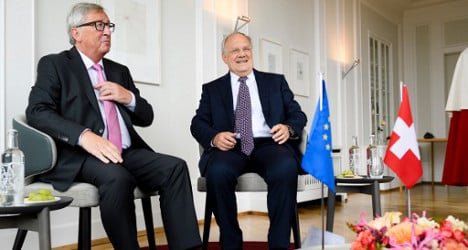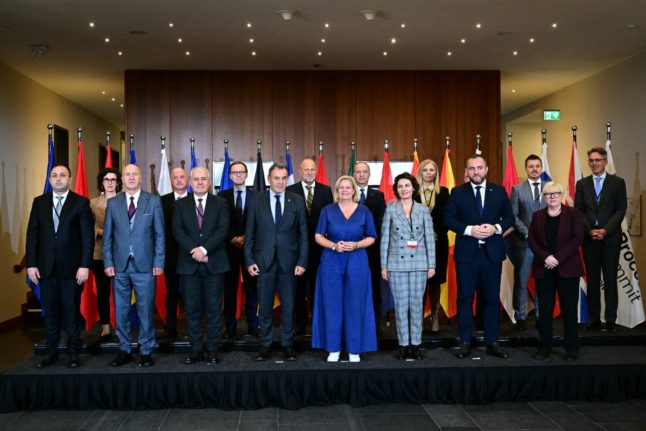In a press conference after the meeting Schneider-Ammann said he was “very satisfied” with the conversation despite there still being no deal on the table in the immigration versus free movement debate, reported Tages Anzeiger.
According to a Swiss government statement, the two men discussed several matters relating to Swiss-EU relations, including the issues surrounding Switzerland’s 2014 anti-immigration vote.
Switzerland has until next February to implement the legally-binding 2014 initiative, approved in a referendum, which demands some form of quotas be placed on immigration from the EU.
Introducing such curbs would contravene the EU’s principle of free movement of people, to which Switzerland adheres through a bilateral agreement. As such, the vote placed the country’s relationship with the bloc under strain, with the EU initially freezing Swiss participation in EU programmes including the Erasmus+ student exchange programme and scientific research project Horizon 2020.
Negotiations over a mutually agreeable solution have been made more difficult by Britain’s decision to withdraw from the EU, and Switzerland was hoping to wrap up its own discussions with Brussels before it addressed the British question.
But that has not been possible.
Following Monday’s resumption of talks, Juncker said Brexit had complicated the situation and that there would be no common immigration/free movement deal for both countries, according to Tages Anzeiger.
The Swiss government is currently considering a nuanced solution to the problem whereby instead of national quotas, temporary limits would be placed on immigration in certain regions or job sectors, should immigration cause issues in those specific areas.
While Juncker hardly green-lit the idea, the Commission may not have any objections to Switzerland “gently privileging” the domestic workforce in this way, said the paper.
Though there remains no deal in sight, Juncker said he was “more optimistic today than I was in previous weeks”.
In its statement, the Swiss federal government said the pair also discussed questions surrounding Swiss participation in Horizon 2020, which depends on the ratification of the Croatian protocol to extend the Swiss-EU bilateral agreement on the free movement of people to Croatia. Switzerland initially refused to sign the protocol in the wake of its anti-immigration vote, before changing its mind in March.
“Each party has interest in preserving and evolving the bilateral path which is a success both for Switzerland and for the EU,” said the statement.
The pair will next meet in October.



 Please whitelist us to continue reading.
Please whitelist us to continue reading.
Member comments